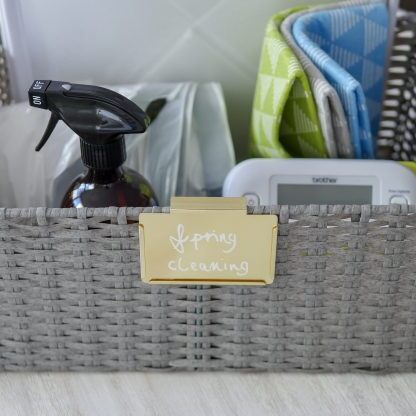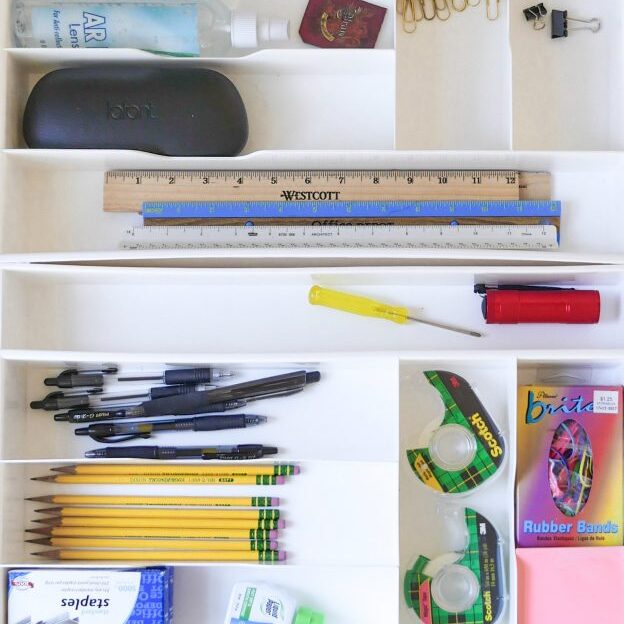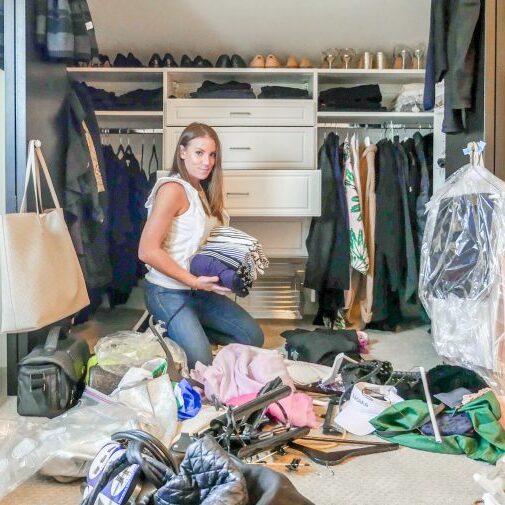The 6 Most Common Things People Don’t Know How To Get Rid Of… ‘Til Now.
I feel comfortable estimating that approximately 50% (at least) of all clutter are things that people don’t know what to do with.
They’re vaguely aware of the fact that the item or collection of things in question requires specific disposal measures, they just don’t know what those measures are.
Then, instead of figuring it out, they just hold onto the stuff. For years. Decades. They move these items cross country and back again.
They don’t want them. They would so happily let them go if only they knew how.
Forget about the fact that there’s this wonderful invention called the internet, and even more so, The Google, with which one can find the answer to literally any question within milliseconds. Forget that. Details.
I might suggest that such people (everyone) take to their devices (already glued to their digits, no doubt) and solve the mysteries once and for all. I might be like, “You can do it!” But I know: people. Time. Priorities.
So I’ll do the next best thing: assemble a list for you right here (!) of the most common sorts of these items I find loitering in people’s homes every day and what to do with them.

1. Old cell phones, old computers, cameras, cords, remotes, and other household electronics
– Donate. If they’re in working order and your preferred charitable organization lists them as an item it accepts.
– Trade-in or Recycle. This is far easier to do than it may sound, I promise! Loads of retailers have electronics take-back programs, regardless of whether or not they’re obviously advertised. For a list of a gazillion different places near you to drop your tech off and walk away happier, less burdened, and more environmentally-friendly check out E-cycling or Earth 911.
If you need help with wiping confidential data from devices prior to recycling, donating, or trading in, peruse this post.
2. CDs/ DVDs / video games
Three main options for you:
– Recycle. If they’re super scratched, have lost their cases and are generally hagard. You can consult the CD Recycling Center of America for local drop off sites, as well as E-cycling and Earth 911.
– Donate. To your preferred charitable organization. Consult their website to see whether these media items are on their accepted items list.
– Amazon Trade-in. CDs, DVDs, and video game stuffs are now acceptable items for Amazon Trade-In. You type in what you’ve got, they give you a quote, a shipping label, and an Amazon gift card.
3. Batteries
Most household batteries are now recyclable. You can either take batteries to your local hazardous waste collection facility (easily found via The Google), or find a local drop off center through Call2Recycle.
4. Paint
– Try to donate. If you have leftover paints that are fairly full, fairly new, and whose labels are still clearly in tact, you can try to pass them on. Donate to Habitat For Humanity or list it on FreeCycle.
– Trash it if it’s latex. In most states, latex paints (look for “water-based” or “acrylic” on the label) should now be thrown away in your garbage (consult local laws to be certain) after you’ve dried them out. Everyone always says to do this by stirring in equal parts cat litter, but I’m convinced that unless you have a cat, and therefore already have cat litter on hand, you’re well-er off going to the hardware store and picking up genuine paint hardener. Stir in, wait ’til it’s hard as a rock, then trash.
– Oil-based paints should be sent to a hazardous waste collection facility. Consult Earth 911 for a list of local resources.
5. Expired medications
The proper disposal method for most medications as prescribed by the FDA is to remove the pills from their marked bottle, place in a nondescript vessel, mix with coffee grinds or cat litter or a similar substance, and then throw away in the trash. To read the short list of meds which the FDA desires you to flush, instead, and along with more in-depth help, visit this guide.
6. Chemicals, cleaners, toxic nasties.
Head to a hazardous waste collection facility. Consult Earth 911 for a list of local resources.
What thing has you stumped? Leave it in the comments below for inclusion in “What in the hell do I do with it?!” Part 2!
Image credit: the amazingly talented artist Dane Lovett
1 Comment
Leave a Comment
Other Posts You May Love
1 Comment
-
[…] as well as–if possible–centralize all files onto one drive/upload to the cloud. Then, ditch all those other unnecessary memory sticks for […]
Leave a Comment
Welcome
Search The Blog
Simplify Your World
Sign up for the email list to get inspiration and simplified tips sent right to your inbox.
On Pinterest























[…] as well as–if possible–centralize all files onto one drive/upload to the cloud. Then, ditch all those other unnecessary memory sticks for […]